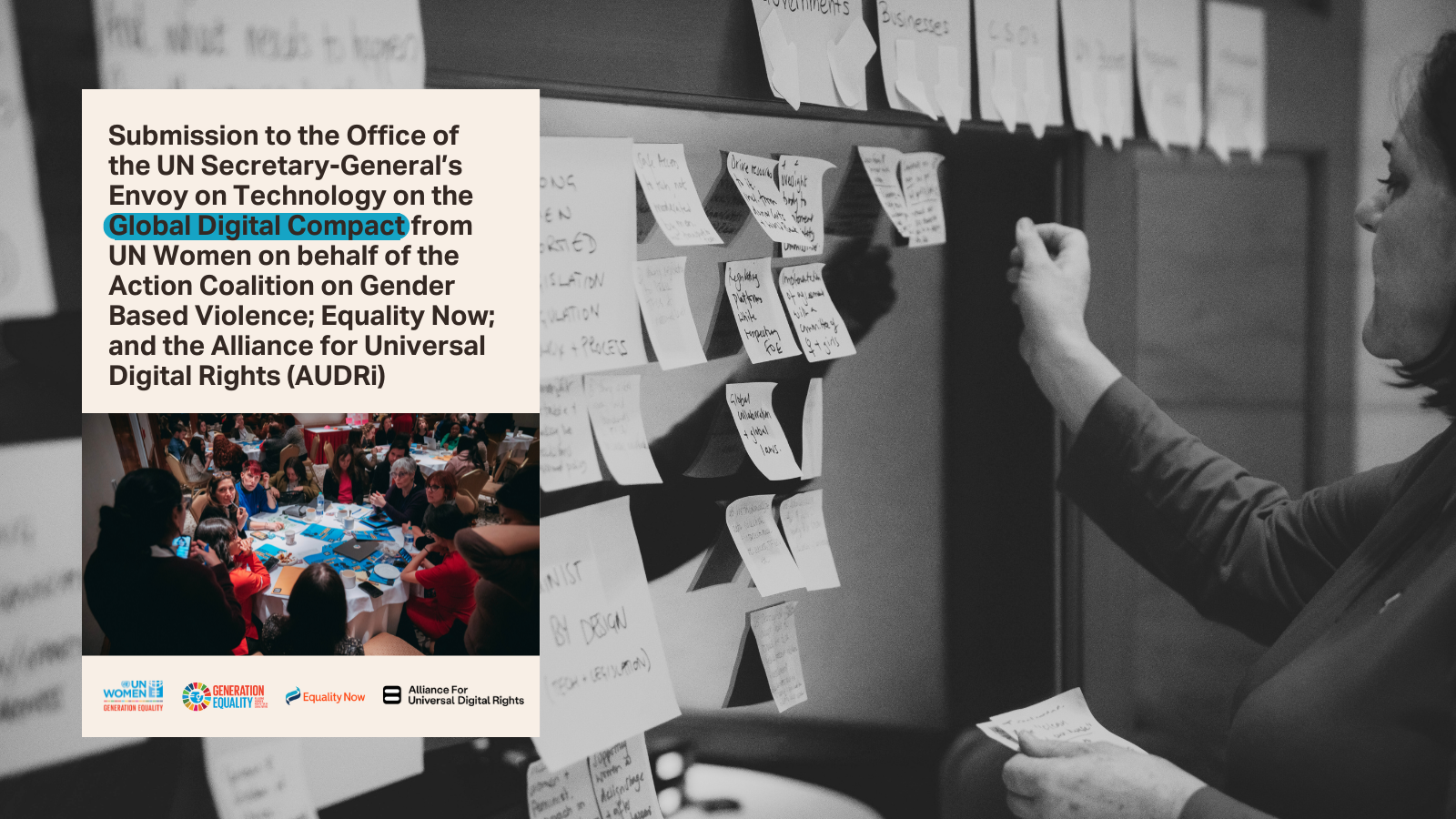Under The Common Agenda, the UN Secretary General called for a Global Digital Compact to be agreed at the Summit of the Future (September 2024) to “outline shared principles for an open, free and secure digital future for all.” Ensuring that women’s rights organizations in all their diversity feed into this process is critical to shape a vision of digital cooperation and governance based on human rights and feminist principles. In his report to UNGA77, on the Intensification of efforts to eliminate all forms of violence against women and girls, the Secretary General proposed a high level consultation on violence against women and girls in digital contexts to inform the Global Digital Compact.
On 6th March 2023 the Alliance for Universal Digital Rights (AUDRi), Equality Now, Women Leading In AI, UN Women representing the Generation Equality Action Coalition on Gender Based Violence and the Governments of Spain, Finland and Mexico co-hosted a consultation event, with the participation of the UN Tech Envoy, to provide opportunities for women’s rights organizations, civil society and grassroots women’s groups to share their perspectives to and feed into the consultation process to ensure that the Global Digital Compact prioritizes women and girls’ safety and human rights in digital spaces.
Eighty participants from around the world[1] attended the session and were divided into 8 groups to discuss the following questions:
- What would the final version of the Global Digital Compact look like if it was rooted in a human- rights based, feminist and intersectional approach?
- What do women in your region need to benefit from the digital revolution? And what needs to happen for all women and girls to experience safety, freedom and dignity when they are online?
- What actions do Governments, Businesses, CSOs, UN bodies, Regional Bodies and International Actors need to take in order to realize this?
This submission summarizes the key points and recommendations that emerged during the session.

[1] Civil society and women’s rights organizations from different countries included Argentina, Armenia, Australia, Cameroon, Canada, Finland, Kenya, Mexico, Nigeria, Poland, Romania, Rwanda, Spain, Sudan, Sweden, Tanzania, Ukraine, United Kingdom, United States, and Zimbabwe,